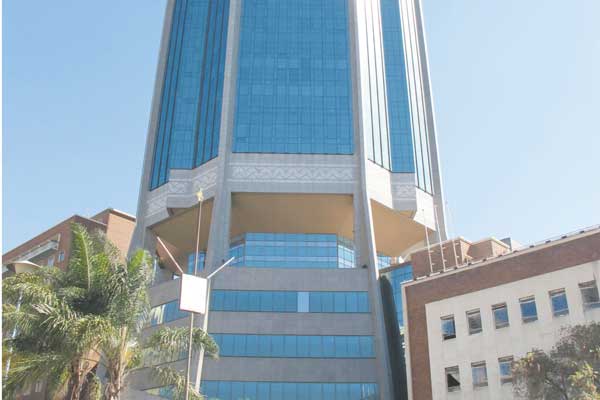
GOVERNMENT’S overdraft with the Reserve Bank of Zimbabwe (RBZ) now stands at $1 billion, making it difficult for the country to continue supporting the 2017 Budget, as money supply and inflationary pressures will increase, a World Bank report has revealed.
BY TATIRA ZWINOIRA
In the World Bank’s second edition of the Zimbabwe Economic Update (WBZEU) report released on Wednesday, the international financial institution said government could not continue replacing this overdraft with Treasury Bills and domestic bonds.
“Replacing this overdraft with Treasury Bills and a domestic bond would further constrain the supply of credit to the private sector,” the report said.
“Conversely, adding to the overdraft to finance the 2017 budget will increase the money supply and intensify inflationary pressures, which to date have been largely contained by administrative measures.
“Going forward, inflationary pressures and tighter controls are projected to limit growth.”
Last month, an International Monetary Fund (IMF) report compiled after the completion of the annual 2017 Article IV visit urged Zimbabwe to contain debt issuance and refrain from central bank financing to restore confidence in the market and attract dollar inflows into the economy.
As for monetary pressures, the market is already witnessing serious challenges, which have led to a serious spike in indiscipline, as the market continues to mistrust the Finance ministry and the central bank.
- Chamisa under fire over US$120K donation
- Mavhunga puts DeMbare into Chibuku quarterfinals
- Pension funds bet on Cabora Bassa oilfields
- Councils defy govt fire tender directive
Keep Reading
Experts say, as the government continued borrowing from the central bank, monetary pressures would increase, as the RBZ only retains 30% of all foreign exchange, some of which goes to servicing the huge public sector wage bill.
The WBZEU report said although structural reforms, including improvements in the business climate, remain vital to Zimbabwe’s economic development, in the short run, they were not likely to fully offset the cost of foreign exchange rationing.
“Critical fiscal adjustments and effective monetary policies will be required to reduce inflation,” the World Bank said.
It said fiscal adjustment would reduce the government’s reliance on monetary financing of the deficit and strengthen the financial sector.
According to the World Bank, the country’s public sector accounts for 50% of the gross domestic product.
Given, Zimbabwe’s ongoing fiscal challenges, the WBZEU report found liquidity shortages would continue for the foreseeable future, with only modest export growth.
“Despite the anticipated liquidity shortages, the domestic electronic payment system is projected to continue to function effectively, allowing consumers and investors to access their bank deposits,” the report said.
“However, inflows of cash deposits into the banking system are unlikely to recover swiftly after a period in which withdrawals were subject to quantitative restrictions.
“Export earnings will increase banking system resources, but cash reserves will remain insufficient to meet demand for cash withdrawals. RBZ guidelines will direct export earnings to priority imports.”
The World Bank said if the government’s Lima proposal settled the African Development Bank’s $610 million, the World Bank’s $1,2 billion, and the European Investment Bank’s $212 million arrears, the country’s fiscal position would improve.











